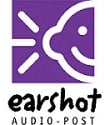Transition from ISDN to IP Audio Continues | Telos Alliance
By The Telos Alliance Team on Mar 20, 2014 10:02:00 AM
 Transition from ISDN to IP Audio Continues
Transition from ISDN to IP Audio Continues
Following our blog post about the gradual phasing out of ISDN in favor of IP Audio transmission for remote broadcasts, we received a variety of comments and questions regarding the pros and cons of this transition. We'd like to answer those questions – not just because we create IP Audio technologies, but so you can better determine if and when IP Audio might be right for you.
With that in mind, our Cam Eicher answers some great questions posed following last week’s blog post.
What about compatibility?
Rick Such, Audio Engineer and co-Owner at Earshot Audio-Post in Indianapolis,  Indiana asked: “Is the Z/IP One proprietary and only functional with other Z/IP One units? Or can it be used to connect to other IP codecs, such as Source Connect or other hardware-based IP codecs?”
Indiana asked: “Is the Z/IP One proprietary and only functional with other Z/IP One units? Or can it be used to connect to other IP codecs, such as Source Connect or other hardware-based IP codecs?”
Rick > The Z/IP One can speak to most other codecs as long as they use the same, well, uh codec! As long as the other hardware box uses one of the coding algorithms found in the Z/IP One, you are compatible. Choices include - AAC-HE, AAC-LD, MPEG4 AAC-LC, MPEG2 AAC-LC, G.711, G.722 and even linear PCM. aptX coding from CSR is available at extra cost. This is possible because the major codec manufacturers adhere to a set of standards known as N/CIP, which allows interoperability between different manufacturer’s devices.
You get an added benefit if you connect two Z/IP One units – they have a feature called ACT, short for Agile Connection Technology, which is a unique coding control algorithm that adapts to changing Internet conditions on the fly, helping you maintain quality and stability.
Could ISDN still be a better choice for some?
 Voiceover Artist George Peck of Evergreen, CO offered these comments:
Voiceover Artist George Peck of Evergreen, CO offered these comments:
First, I'll pick a "nit." An "ISP" doesn't provide ISDN service – your TELCO does. And, that's part of the issue here. The TELCO is traditionally a reliable, over-copper provider. ISDN is a dedicated point-to-point connection. It works. It's not dependent on how many of your neighbors are streaming Netflix or whether your ISP is an at-best, occasionally-reliable wireless option that survives solely because it's the only option in a rural area, not because it provides decent consistent service.
I've just described my situation. Right now, ISDN is still costing me $76 a month. And, I really hope it stays that way for the foreseeable future, as IP audio isn't a realistic option for me unless I move. And, I like where I live!
Cam got back to George with the following:
George > You are mostly correct in that TELCOs are the ones providing ISDN services. However, most TELCOs in this day and age have become ISPs (AT&T, Verizon, Qwest) so the terms differentiating the two have become a bit blurry. And you are also correct that ISDN guarantees a certain level and quality of service over a point-to-point link – something that a consumer Internet connection cannot do.
In your situation, you have great, affordable ISDN service and no-so-great Internet service – so I’m with you – don’t give up your ISDN lines. Telos still makes the Zephyr Xstream and is not suggesting that everyone with a good ISDN situation ditch it for an IP-based solution. Just that people in some areas have the opposite experience - over $300, or even $500 a month per ISDN line and increasing. Or the elimination of services altogether.
Is ISDN going away everywhere?
Voice Actor Hernan de Beky posed the following:
I am a tad confused here with this new sound apparatus called Z/P One. I am a Voice Actor and ISDN user for many years, I'm quite happy with my Telos Zephyr Layer III, even though it is an older box, it works like a charm. My question is very simple: Is ISDN being phased out? Where? And if so, will Z/P One take its place?
Quick comment, had a chat with my TELCO tech about ISDN and she told me that at least in L.A. the talk of phasing out ISDN died pretty quickly when AT&T got an earful from scores of L.A. Home Studio ISDN users, asking not to mess around with ISDN at all. Apparently, the tech told me, AT&T got the message and since then quietly decided to ditch plans to eventually grandfather the service... New ISDN Line Service orders is up higher than ever. Thank God!
Cam offered the following assessment for Hernan:
Hernan > I think you are in the same boat as George, above. In some areas ISDN is still affordable and widely available. For you folks, there is no reason to give up the service and move to anything else. But we’ve heard from many other geographical areas where customers are not so lucky and users are forced into IP based solutions. Eventually, ISDN will go away as it’s very expensive for the TELCOs to dedicate those lines to customers. There is just no definite timeline to this and, for some, that sunset may be many years away. But for areas that are seeing ISDN fading to black now, we have the Z/IP One ready as a replacement solution today.
What about IP Audio standards?
Another comment, from freelance broadcast engineer Warren Wilding at Blast 106 in Belfast, Northern Ireland, pointed out concerns regarding standardization of IP Audio:

Although I agree that IP will and needs to be the natural successor to ISDN, IP needs to standardize itself in terms of protocols and codecs. Right now, there are dozens of units out there, some with proprietary systems which will only connect to one of their own, some which will connect to some but not others but as yet no firm standard as to the transport protocols, nor the audio coding had been agreed. Until this happens, IP cannot become a ubiquitous replacement for ISDN as the beauty of ISDN is that any unit will connect to any unit. As improvements and new coding have come along, the backwards comparability has always ensured that even if the user at the remote end had an older unit, there was always a successful connection.
IP needs to get to this stage and fast before we end up all having different incompatible of obsolete units. Hopefully the manufacturers are listening.
Fortunately, says Cam, manufacturers are paying attention to these concerns:
Warren > Manufacturers are listening! We do have some standards in place for IP codecs – it’s called the N/ACIP standard and most major codec companies adhere to the standard. You can learn more here.
However, as is the case with many standards, they exist as a “least common denominator” kind of solution. Everything can communicate together, but only in the most universal, or sometimes basic, kind of way. So manufacturers, including Telos, found they could adhere to the standards, but then provide an enhanced layer of functionality that was only realized when used with a like product.
You have some of the same issues with ISDN, albeit to a lesser degree due to its maturity. But you could not take an ISDN unit that is communicating using the MPEG Layer 3 protocol and connect to another unit that was using AAC. The “least common denominator” codec for ISDN is G.711, which allows nearly all ISDN units to talk to each other, but does not provide nearly the audio quality of two ISDN codecs using AAC.
The good news is that standards tend to evolve to include more and more features as they mature, so you can expect better and better connectivity between different manufacturers’ boxes as time rolls on.
A complete switch to IP Audio as the new standard is still a ways off, but in considering Telco trends, it's a good bet that it will one day replace ISDN. Until then, we'll do our best to provide you with the best information regarding the transition, and the continuing evolution of IP Audio technology.
What do you think? We look forward to your point-of-view in the comments.
Telos Alliance has led the audio industry’s innovation in Broadcast Audio, Digital Mixing & Mastering, Audio Processors & Compression, Broadcast Mixing Consoles, Audio Interfaces, AoIP & VoIP for over three decades. The Telos Alliance family of products include Telos® Systems, Omnia® Audio, Axia® Audio, Linear Acoustic®, 25-Seven® Systems, Minnetonka™ Audio and Jünger Audio. Covering all ranges of Audio Applications for Radio & Television from Telos Infinity IP Intercom Systems, Jünger Audio AIXpressor Audio Processor, Omnia 11 Radio Processors, Axia Networked Quasar Broadcast Mixing Consoles and Linear Acoustic AMS Audio Quality Loudness Monitoring and 25-Seven TVC-15 Watermark Analyzer & Monitor. Telos Alliance offers audio solutions for any and every Radio, Television, Live Events, Podcast & Live Streaming Studio With Telos Alliance “Broadcast Without Limits.”
Recent Posts
Subscribe
If you love broadcast audio, you'll love Telos Alliance's newsletter. Get it delivered to your inbox by subscribing below!